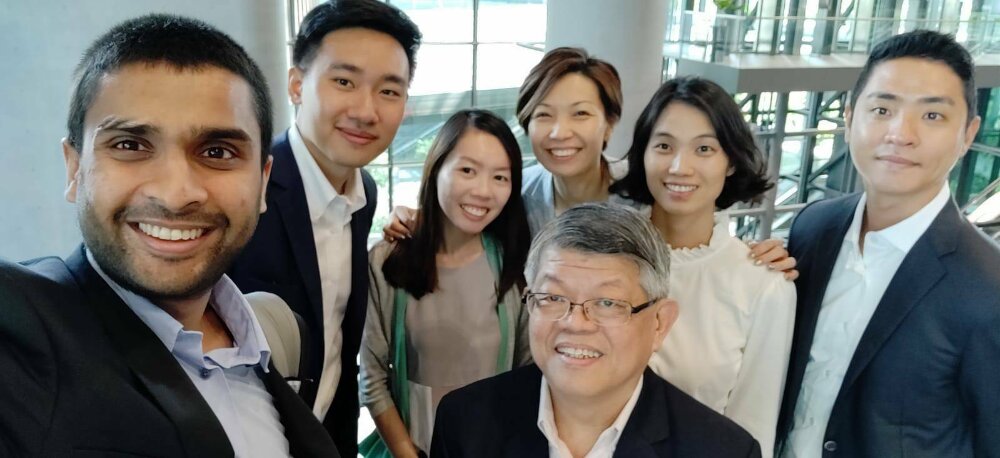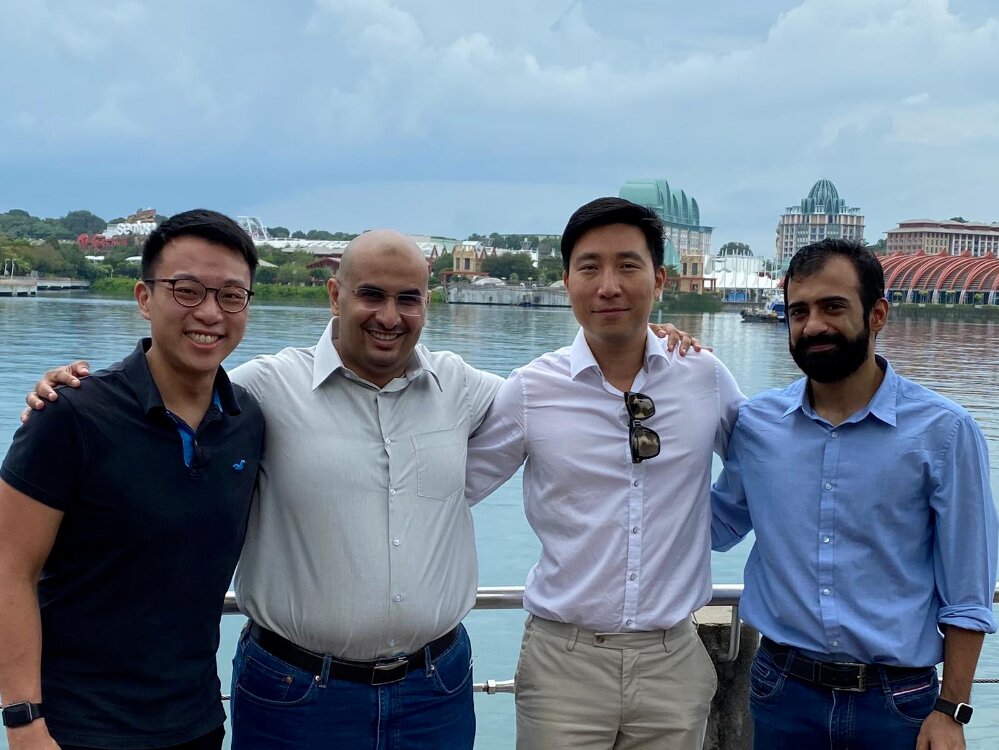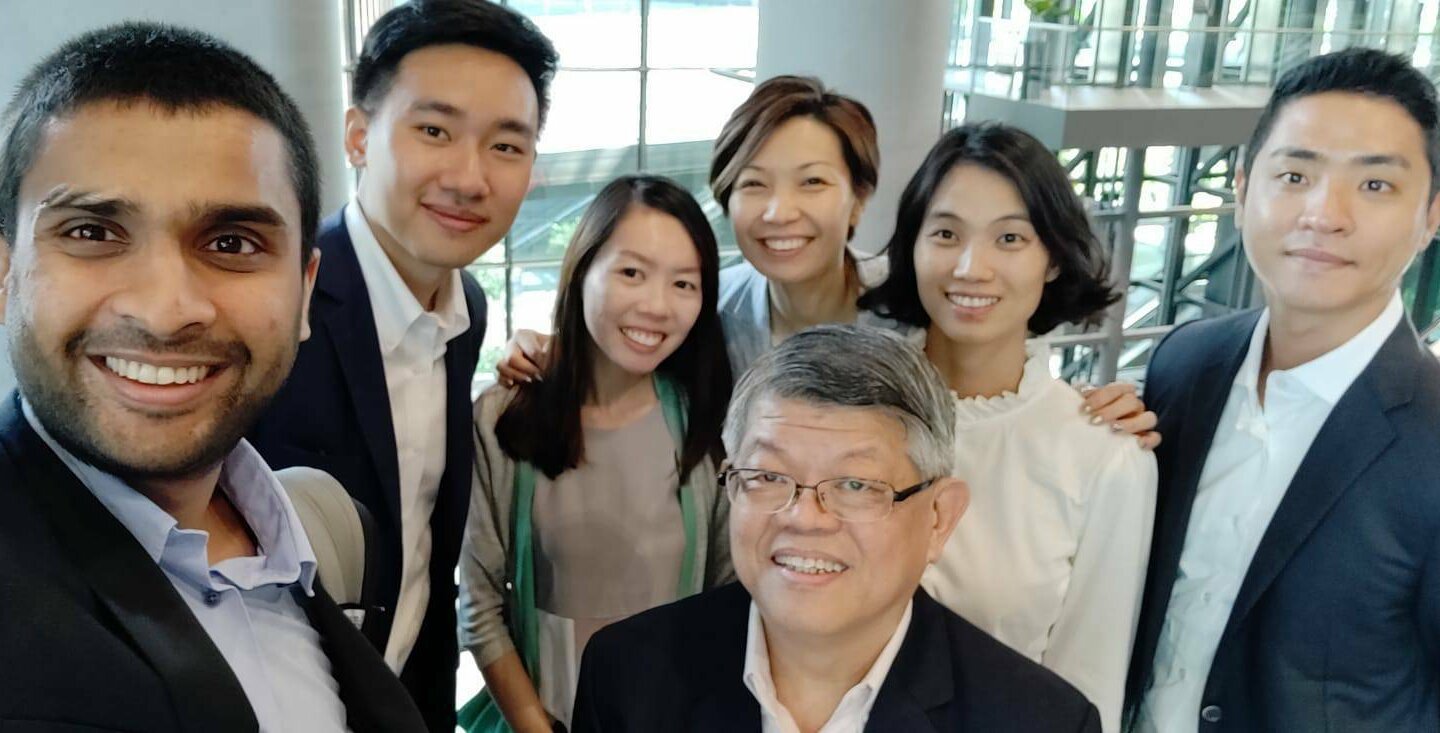Small and medium enterprises (SMEs) hire some two thirds of the Singapore’s workforce. Thus it comes as no surprise that the government encourages this economic backbone to embrace technology to become more efficient, innovate and find new revenue streams.
Two MBA candidate teams got the chance to be involved in Singapore’s digital transformation through consulting projects with multinational corporations, PwC and OCBC.
The projects are part of the MBA Consulting Project module, where students apply their knowledge to actual business challenges. Such experiential learning initiatives allow students to engage business leaders and expand their networks. With both projects taking place between January and April this year, the student teams also had to navigate new ways of doing things given the constraints of the pandemic.
Our MBA students share their experiences with BIZBeat.
Understanding SMEs’ pain points
PwC, a professional services provider that works with the government to provide consulting services and training, found that SMEs here are slow to digitise. MBA candidates Hyunyoung Kim, Pitchpop Piamthipmanas, Rajat Bansal and Seyoon Chung were tasked to find out why.

Rajat, Pitchpop, Rena Lee, Joane Yuen (both from MBA Programmes Office), faculty supervisor Adjunct Associate Professor Quah Siew Heng, Hyunyoung and Seyoon
The students tapped on what they had learnt in their Operations Management class, and applied Customer Journey Mapping to identify improvement opportunities in the government’s grants system. In a survey with 12 stakeholders and representatives from the SME industry, the students found that a common pain point is finding suitable programmes for their digital transformation needs. Furthermore, the respondents shared that navigating the numerous grants and schemes set up by the government is difficult.
Expanding the project scope
Instead of simply submitting their findings in a report, the team went the extra mile to develop a mobile application that helps SMEs to find relevant programmes and schemes that suit them best.
Based on an artificial intelligence engine, the platform analyses the company’s information in government data portals and recommends the grants and schemes that best suit the firm’s needs.
The students also added a knowledge management-based module to the platform so that SMEs can learn from other firms who have succeeded in their digital transformation journey.
The PwC executives were impressed and are looking to refine the students’ concept further.
“We can clearly see a lot of effort has been put in to come up with solutions and a prototype,” said Greg Unsworth, Digital Business and Risk Assurance Leader, PwC Singapore. He also added that the students’ solution is timely with the COVID-19 forcing SMEs to hasten their digital transformation efforts.
Faculty supervisor Adjunct Associate Professor Quah Siew Heng (Department of Strategy & Policy) said the students worked very well as a team to overcome the various challenges, including the pandemic, in the project. “The practical experience in completing this project successfully has increased their confidence in their own decision-making process,” he added.
Becoming trusted partners to SMEs
The Monetary Authority of Singapore announced mid-2019 that it will be issuing five digital banking licenses and non-bank players are allowed to participate.
OCBC assigned Yousif Alroumi, Douglas Tan, Martin Lee and Manav Narang to analyse the 21 license applicants and study the impact of digital banking on the SME market segment.
The four developed an evaluation framework to rank the applicants based on their brand appeal, innovativeness, their ability to execute and digital banking experience in other countries. They found that top applicants tend have an ecosystem of partners and target under-served customer segments.

From left: Douglas, Yousif, Martin and Manav
While existing banks may already have products and services targeted at SMEs, they can take things further by developing an SME ecosystem. Like the digital banking consortiums, there are opportunities for the bigger players to rope in specialist partners to focus on areas such as platform development. In addition, incumbent banks have an edge where they can be the integrators of multiple solutions and offer personalised consultancy service to SMEs.
“Trusted banks have leverage over digital banks as SMEs can engage in face-to-face interaction within their ecosystem to offer services such as uncollateralised lending facilities,” said Yousif.
Project and team management
When asked which MBA knowledge came in most handy for their project, the four rated the High Challenge, High Support concept from the Launch Your Transformation module highly as it polished their soft skills as leaders.
“This was critical as we were able to avoid any workplace conflict even when there were disagreements, it was purely work-related and never escalated beyond the meeting table,” said Yousif.
The candidates also impressed the OCBC team with their ability to communicate with stakeholders, said Faculty supervisor Associate Professor Amit Jain (Department of Strategy & Policy).
“I was most impressed with the team’s project management skills, scheduling periodic update and review sessions, and providing timely minutes with clear next steps and goals. This group of students was the most professional and diligent team I have worked with on projects of similar nature,” said Kwan Hoon Park, Vice President, Digital Solutions, OCBC, who was the mentor for the students during the project.
“The team progressed well through all the project stages and the final project presentation was received with great interest by OCBC,” added Associate Professor Amit.
Looking back at their projects, the two teams said they were able to put their MBA knowledge to good use in actual business conditions.
“Going through the whole journey — from a stated business problem to finding root causes and designing a solution with an implementation plan — is a remarkable learning experience in itself. This has been one of the most enriching experiences of the whole MBA program for me,” said Rajat Bansal.
About The MBA Consulting Project
The MBA Consulting Project module is a capstone project for the candidates, who are grouped into teams of four to five students each. They partner with organisations to produce business plans that incorporates financial, marketing, operational and strategic recommendations.
This module has led to over 300 projects across 12 different industries with more than 150 companies such as financial institutions, start-ups and non-profit organisations.





